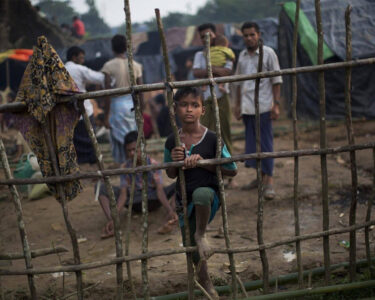Canada maintains its position as globally renowned in human rights, a nation built on a foundation of justice, equality, and multiculturalism. However, a comprehensive valuation of Canada’s human rights record reveals a far more complex and often contradictory reality, going well beyond facile, superficial narratives. While Canada engages with the international framework on human rights, inconsistencies between its international pronouncements and domestic practices require a scrupulous and unremitting analysis.
At the International level, Canada’s involvement in multilateral organizations and its vocal representation in various human rights causes are significant. Canadian diplomats are active participants in drafting resolutions that condemn global human rights violations and support international mechanisms designed to promote accountability. In this view, this engagement advances the international dialogue on human rights, accountability towards violators, and pushing the boundaries of international norms. These demonstrate that Canada is committed to the architecture of international human rights. Canadian involvement in organizations such as the United Nations Human Rights Council, its support for international criminal justice initiatives, and its diplomatic efforts focused on specific crises establish a commitment to the international human rights architecture. In addition, Canada provides financial and technical assistance to various organizations and projects promoting human rights and democracy internationally. This leads to a global ecosystem protecting and raising awareness about human rights.
However, this international leadership is perceived as selective and inconsistent. Criticisms arise because of times when Canada’s actions seem to support economic or geopolitical interests above human rights considerations, a recent example is the trade relationship between Canada and countries with notorious human rights abuses, which contradicts Canada’s commitment to international human rights standards. While the need for a more coherent and consistent approach to foreign policy that does not sacrifice human rights for the sake of either economic gain or political expediency is crucial, in reality, practical limitations and geopolitical considerations often impede the power of Canada’s engagement on the world stage. The influence of powerful states that do not respect international norms, the complexity of armed conflicts, and the challenges of implementing international law frequently limit the capacity of even the most dedicated actors to bring about meaningful change. Moreover, the selectivity in Canada’s condemnation of human rights abuses – often criticizing regimes considered adversaries while overlooking human rights violations in allied countries – raises concerns about the consistency and impartiality of its foreign policy. This selective approach undermines Canada’s credibility and fuels accusations of hypocrisy. One of the persistent challenges, indeed, has been maintaining a balancing act between national security interests and human rights principles, which often leads Canada to compromise and undermine its moral authority. This is worsened by the growing complexity of global challenges like climate change, migration, and technological advancements that intersect with human rights in unforeseen ways. As the emerging challenges increase in complexity, it is even more important for Canada to demonstrate its ability to change its international human rights strategy.
The most significant challenge to the Canadian human rights image stems from its domestic record. The problem of colonialism continues to leave its violent and corroding mark on Native communities and represents a profound and remaining contradiction to its international human rights rhetoric. The Truth and Reconciliation Commission’s (TRC) calls to action issued in 2015 are critical for guiding actions towards redressing historic injustices and building a better future with Native peoples. There has been positive movement, but the implementation of TRC calls to action is woefully inadequate, forcing Native communities to have their voices heard concerning systemic discrimination across healthcare, education, and justice initiatives. The discovery of unmarked graves at former residential schools continues to unearth the horrific scale of past abuses and fuels ongoing calls for justice and accountability. There is a long history of injustice to be redressed because this failure undermines Canada’s moral authority and hinders reconciliation while cycles of trauma and disadvantage continue unabated. One of the contributing factors has been the slow pace of legislative reforms, the insufficient budget allocated to Native communities, and the lack of meaningful consultation with Indigenous leaders.
Beyond the legacy of residential schools, Native people face various challenges from persistent racism, poverty, and poor access to many vital services. Such societal ailments as the overrepresentation of these peoples in the criminal justice system, continuation of the struggle for self-determination, and the pervasive effects of systemic discrimination underscore deep-set inequalities that merit the most urgent and holistic response. This internal conflict contrasts starkly with Canada’s international posturing as a human rights champion and considerably eats away at its moral standing on the world stage. However, the lack of proper access to clean drinking water, healthcare, and education in most Indigenous communities stands as a fundamental violation of the very core of human rights and exposes the stark contrast between the professed values of Canada and the lived realities of the country. The reconciliation process must bring a more holistic, culturally sensitive approach to resolving complex challenges within Native communities toward meaningful reconciliation and building a more just and equitable society.
Furthermore, Canada’s commitment to human rights is challenged by issues of systemic racism impacting racialized communities across the country. Concerns regarding police brutality, racial profiling, and disproportionate incarceration rates highlight a persistent gap between the country’s legal framework and lived realities. While Canada possesses robust human rights legislation, systemic racism continues to undermine the effectiveness of these legal protections. The lack of accountability for police misconduct, the slow pace of institutional reform, and the persistence of racial bias in particular sectors are all indicators that demand an all-out effort to dissipate systemic racism and actual equality. It presupposes not just policy changes but a sea change of attitudes, beliefs, and practices at all levels within institutions and society at large. Because of the disproportionate impact of systemic racism on Black and other racialized communities, a tailored approach addressing specific challenges to create meaningful inclusion and participation is crucial. Furthermore, moving to address systemic racism does not only mean reactive steps such as investigations into police misconduct but also proactive measures in preventing future discrimination and creating a more just and equitable society.
In conclusion, Canada’s commitment to human rights presents a mixed legacy in the current year. While its international engagement is undeniable, its domestic record exposes significant shortcomings that undermine its credibility as a global leader. The reconciliation with Indigenous peoples, the dismantling of systemic racism, and the consistent application of human rights principles across all sides of Canadian society are paramount. Meaningful progress requires a combination of legislative reforms, institutional changes, and a genuine commitment to addressing historical injustices and systemic inequalities. Canada must align its domestic practices with its international pronouncements to regain its moral authority and effectively champion human rights on the global stage. Only through a commitment to accountability, transparency, and genuine efforts to create a just and equitable society for all its citizens can Canada truly live up to its self-proclaimed role as a human rights leader. The path towards achieving this requires sustained efforts, political will, and a fundamental shift in priorities, ensuring that human rights are not just aspirational goals, but the driving force behind Canadian policy and action.




